A generation later, in the prelude to his epic on the civil war that had brought Julius Caesar to power, the poet Lucan pointed out that there had been plenty more foreign enemies for Rome to conquer, before turning on itself for a good fight:
The Chinese should have gone beneath the yoke, and barbarous (dwellers by the) Aras, and any sentient people at the head of the Nile.
If you have such a passion for unspeakable war, Rome, turn your hand against yourself only when you have put the whole world under Latin laws: you have not yet run out of enemies. *
The readiness of the Romans to overlook the actual limits on their power was more than overweening pride. It showed that although their empire’s borders were far-flung, their consciousness was not. Rather, it stayed concentrated at its traditional centre, in Rome, Italy, and MARE NOSTRVM ‘our sea’. Tellingly, their word for world is actually an expression, ORBIS TERRARVM ‘circle of lands’. Circles have centres. The Roman state did not identify with its provinces as the provinces were made to identify with Rome. Rome was mistress of the world; lands that she did not rule were hardly considered part of the real world at all.
In the three centuries from 238 BC Rome’s territory had expanded beyond Italy to include the whole Mediterranean basin, and with it had always come use of the Latin language. While its use was never officially required when these lands were added as provinces to the Empire, use of the original languages tended to dry up in the following centuries. Sicily, Corsica and Sardinia, Spain, North Africa, Southern Gaul, Northern Gaul, and Britain, the Alps, and—despite Ovid’s early problems—the Balkans all found that Latin became the currency of power in the early centuries AD and was then taken up much more widely in general use.
Latin’s expansion across Europe had happened by discrete stages, always after successful campaigns by the Romans’ highly organized army. This language expansion through centrally planned campaigns is unique in Europe’s history. It contrasts sharply with the progress of Gaulish, say, which filled the western lands and North Italy in the centuries up to 300 BC, or Slavonic, which was to spread into the Balkans after AD 450. For them, the engine of language spread was the incursion of large-scale raiding parties followed by settlement, which in the extreme became full-scale migration with bag and baggage, Völkerwanderung . This more traditional way was how Gaulish had reached Galatia in Asia Minor in 278 BC; and indeed this was how the Sabellian tribes had spread Latin’s southern neighbour language Oscan southward across most of Italy’s Mezzogiorno in the early first millennium BC. But when Latin spread, it was as the result of a war waged at the behest of the Senate in Rome; it brought with it a civic culture, based on cities linked by roads, and a much wider use of literacy (in Roman script) than had been known before, even where the newly conquered peoples had long experience of contact with literate outsiders.
The displacement effect of this orderly advance of Latin on the previous languages of what was becoming Europe was devastating. It is calculated that in the five centuries from 100 BC to AD 400 the count of known languages in lands under Roman administration fell from sixty to twelve, and outside Africa and the Greek-dominant east, from thirty to just five: Latin, Welsh, Basque, Albanian, and Gaulish—among which Gaulish was already marginal and doomed soon to die out totally. The very names of the lost languages, crossing southern Europe from west to east, sing an elegy of vanished potential: Lusitanian, Celtiberian, Tartessian, Iberian, Ligurian, Lepontic, Rhaetic, Venetic, Etruscan, Picene, Oscan, Messapian, Sicel, Sardinian, Dacian, Getic, Paeonian. 17
Although the spread of Latin was never an object of Roman policy, there was a certain triumphalism about it in some quarters, even early on. Pliny the Elder was writing in the mid-first century AD that Rome had been elected by divine providence “to unite in conversation the wild, quarrelsome tongues of all their many peoples through common use of its language, to give culture to mankind, and in short to become the one fatherland of every nation in the world.” 18And even if this attitude was not often made so explicit, there can be no doubt that de facto all Romans presumed that their language, if any, would be the standard for communication in their domains. The first emperor Augustus left a declaration of his achievements (INDEX RERVM GESTARVM) with the vestal virgins to be read in the Senate after his death; copies were likely placed in temples all across the Empire, although there is only direct evidence for four, all in the East. Its text is always in Latin, in the Greek-speaking cities of Antioch, Apollonia, and Ancyra in Asia Minor, as in the nearby major Roman city of Colonia Caesarea, though in Ancyra at least it appeared with a full Greek translation.
Anecdotes show the early emperors’ concern to assert the status of Latin. In the first century AD, Augustus’ successor Tiberius is on record as having required, during a trial, a soldier who was questioned in Greek to answer in Latin; and his successor Claudius deprived a notable Greek of his judgeship, and even his citizenship, on the grounds that he did not know Latin. 19Clearly the only language whose status could contend with Latin for official purposes was Greek; but even the cultural prestige of Greek, and its practical usefulness as a lingua franca, had to yield for the highest government purposes to Latin. As Cicero put it, “It is not so much creditable to know Latin as it is a disgrace not to.” 20
Romans’ attitudes to others’ languages and traditions as spoken in the provinces were always dismissive. The popular dramatist Plautus, writing in the generation after Rome had subdued and incorporated Carthage, introduced a Carthaginian character with the words “He knows every language and knowingly pretends he doesn’t: a typical Carthaginian, you know what I mean?” 21Occasionally we can see the kind of condescending attitudes that nonliterary Romans felt for the populations into which Latin was projected. “The Britons have all too many mounted troops. Their riders do not use swords, and these Brits don’t sit back to discharge their javelins.” 22This is from a note made at the Roman garrison at Vindolanda on Hadrian’s Wall, established in the first century AD on the boundaries of Scotland, perhaps speculating why these Brits were less effective as soldiers than the Romans. *
But war was not the only way that scope was created for the spread of Latin. People who were to be incorporated into the Empire might well have encountered Latin well before it became the language in which they were governed, most likely on the lips of NEGOTIATORES, Roman businessmen. Cicero in a defence speech in 69 BC, stressed how full Gaul already was of these operators: “Gaul is packed with businessmen, chock-full of Roman citizens. Not a Gaul does the slightest business without the involvement of a Roman citizen; not a coin changes hands without the involvement of Roman citizens’ accounting.” 23
And in another speech, delivered a few years later, Cicero took for granted—even with an audience of Romans—the fact of Romans’ abysmal behaviour as governors and exploitative businessmen in the provinces: “Words fail me, Romans, to express how much hatred is felt for us among foreign peoples because of the lusts and depredations of those that we have sent out to govern them over these years. Do you think there has been a temple left honoured by our magistrates, a community inviolate, a home adequately locked and defended? Nowadays cities are sought out for their wealth and resources so that war can be waged on them, just for greed to despoil them.” 24
Читать дальше
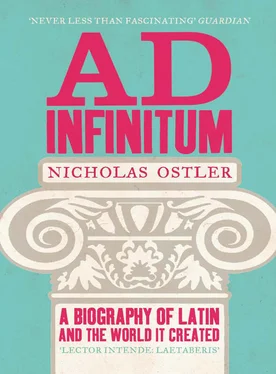

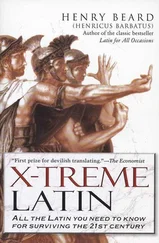


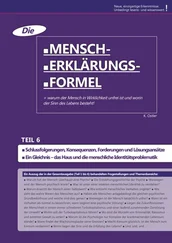
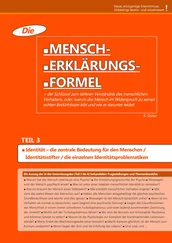
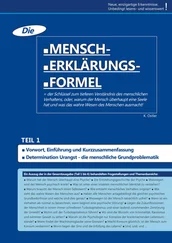
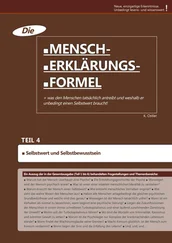
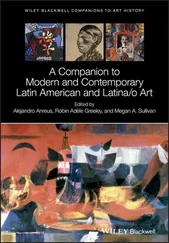

![Nicholas Timmins - The Five Giants [New Edition] - A Biography of the Welfare State](/books/701739/nicholas-timmins-the-five-giants-new-edition-a-thumb.webp)
